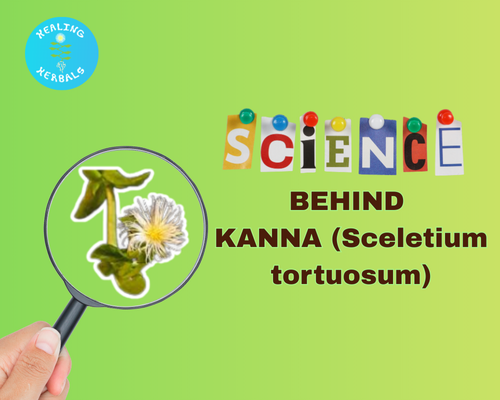
The Science Behind Kanna’s (Sceletium tortuosum) Calming Power
Share
For centuries, Sceletium tortuosum, or Kanna, has been part of South Africa’s cultural heritage, valued for its remarkable ability to soothe the mind and lift the spirit. Today, researchers are uncovering the science that supports what indigenous communities have known for generations.
A Brief History of Kanna
 The San and Khoikhoi peoples traditionally harvested, fermented, and chewed Sceletium tortuosum to ease anxiety, sharpen focus, and enhance social interaction. This ancient practice wasn’t just ritual—it was a daily tool for emotional resilience in a challenging environment.
The San and Khoikhoi peoples traditionally harvested, fermented, and chewed Sceletium tortuosum to ease anxiety, sharpen focus, and enhance social interaction. This ancient practice wasn’t just ritual—it was a daily tool for emotional resilience in a challenging environment.
The Science Behind the Calm

Modern analysis reveals that Sceletium tortuosum contains unique alkaloids—mesembrine, mesembrenone, and mesembrenol—that interact with the brain’s serotonin transporters. This gentle modulation may:
- Promote emotional balance
- Reduce nervous tension
- Enhance cognitive performance
- Support stress resilience
Why People Love It Today
In an age of constant mental strain, more people are turning to plant-based options like Sceletium tortuosum for natural mood support. Whether in capsules, teas, or tinctures, Kanna is praised for:
- Offering a sense of relaxation without sedation
- Supporting focus and creativity
- Encouraging a positive outlook

Choosing Quality Sceletium Products
Not all Kanna is created equal. Look for products that are:
- Lab-tested for purity and alkaloid content
- Ethically sourced from sustainable farms
- Free from fillers and artificial additives
From ancient African plains to modern wellness routines, Sceletium tortuosum continues to prove itself as a natural ally for mental and emotional well-being. With science now validating its benefits, Kanna is more than tradition—it’s a bridge between heritage and modern health.
